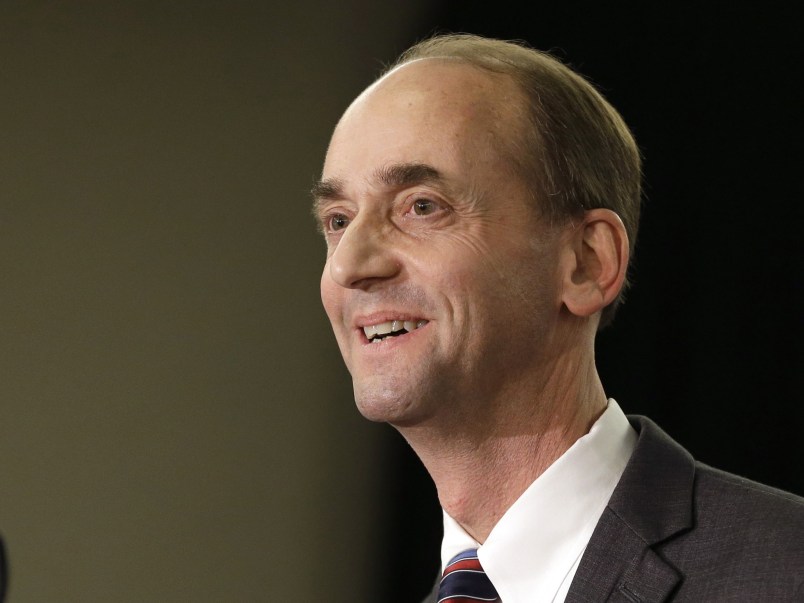Police said Tuesday that they found no evidence to provide a motive for the suicide of former Republican gubernatorial candidate and Missouri state Auditor Tom Schweich, all but concluding their investigation into his death.
Clayton, Mo. Police Det. Lt. Don Bass told the St. Louis Post-Dispatch that investigators never found a note or anything else to provide a motive for the suicide in searches of Schweich’s cell phone and computer.
Later in a news conference, police released more findings from their investigation that added crucial context to Schweich’s death, including chronic illness and a history of suicidal thoughts.
Schweich took his own life on April 26, shortly after arranging for an interview with reporters later that same day. The gubernatorial candidate had planned to go public with allegations that the state’s Republican Party chair had been telling people he was Jewish in order to hamstring him in the primary. Schweich was an Episcopalian, though he had Jewish heritage.
Police suggested in the news conference that Schweich had contemplated suicide before the allegations of a “whispering campaign.” Det. Tom Bossch, who worked on Schweich’s case, said that the late auditor had confided in family members that he had suicidal thoughts before. Schweich’s wife told investigators that Schweich had mentioned those thoughts “on and off for several years,” Bossch said.
Schweich also suffered from Crohn’s disease. Bossch said that while Schweich had been prescribed 24 different drugs, including pain relief medications, an autopsy showed that the late auditor was not under the influence of any drugs at the time of his death.
“There were many factors that went into this,” Bossch said. “We can’t get into Mr. Schweich’s mind.”
When a reporter asked whether the alleged whisper campaign was still considered a driving factor in the gubernatorial candidate’s suicide, Bass responded: “I think it’s reasonable to say that the family thinks that’s the number one reason.”
For his part, the state’s GOP chairman, John Hancock, consistently denied any allegations of a so-called “whispering campaign” about Schweich’s religion.
Hancock did acknowledge that he may have told someone that Schweich was Jewish in an offhand manner because he said he’d been mistaken about the late auditor’s faith. But the chairman denied making any of the alleged statements in an interview with police, Bossch said.
Police added that their investigation had turned up no evidence of the whispering campaign beyond the allegations a local businessman and Republican donor, David Humphries, put forward last month in an affidavit.
Schweich’s spokesman Spence Jackson also committed suicide a little more than a month later, leaving behind a note that read “I just can’t take being unemployed again.”
Bossch said that there was no link between the two deaths and that the men had no relationship outside the auditor’s office.
The investigation was not completely closed as police were still in the process of seizing Schweich’s work computers.
This post has been updated.







